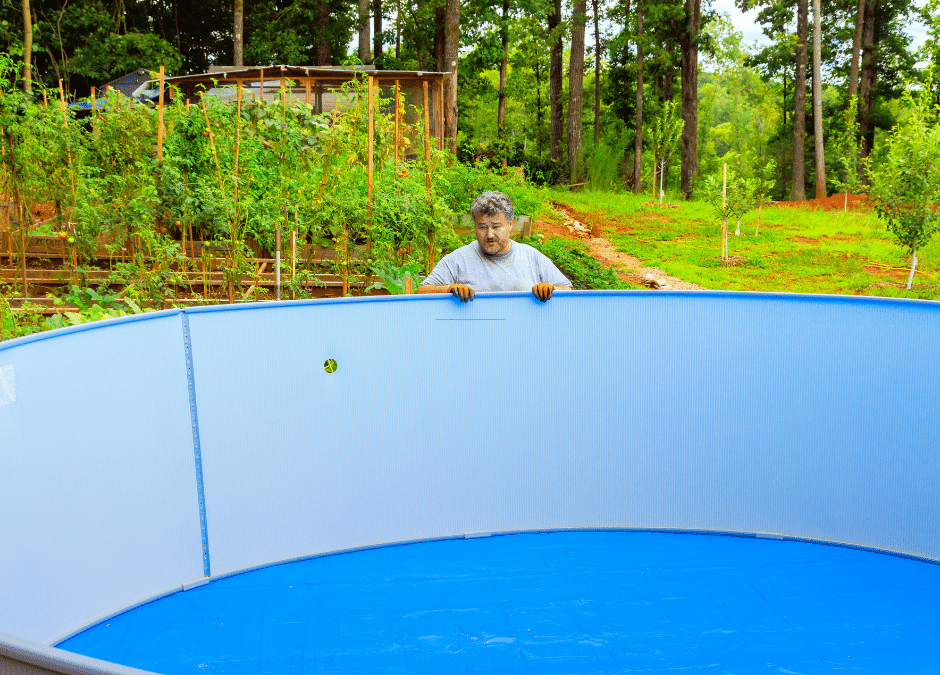Preparing your above-ground pool for the winter months is crucial as the leaves change color and the temperatures drop in Atlanta. Winterizing your pool can prevent costly damages like cracking and algae growth, ensuring it stays in excellent condition for spring. This process involves several steps designed to protect the pool’s structure and water quality during the off-season. Neglecting to winterize can lead to significant repair costs and a delayed start to the next swimming season. Follow Atlanta Above Ground Pool Installation Pros‘ guide to properly safeguard your pool against colder elements.
Understanding the Importance of Winterizing
Winterizing your pool is vital to avoid the harsh impacts of winter weather, including freezing temperatures and potential contamination. Your pool could face severe issues, such as liner tears and equipment failures, without proper winterization. These problems can be costly and time-consuming to fix, highlighting the necessity of taking preventative measures now. Effective winterization also helps maintain water quality and makes spring opening easier and less expensive. This process is an investment in the longevity and health of your pool.
When to Start the Winterizing Process
In Atlanta, the best time to start winterizing your pool is in late fall, before the first frost sets in. This timing helps protect your pool and its components against sudden temperature drops that can lead to freezing and related damages. Ideally, winterization begins when the daily temperatures consistently fall below 65 degrees Fahrenheit. This proactive approach allows ample time to address all necessary steps without rushing. Planning ahead can also prevent common pitfalls associated with late or inadequate preparations.
Cleaning Your Pool Before Winter
Begin by thoroughly cleaning your pool. Remove debris, leaves, and dirt, then balance the water chemistry. A clean and chemically balanced pool will better withstand the winter months and reduce the likelihood of problems like algae growth. Scrub the walls and floor to remove buildup, and vacuum the pool to eliminate all fine particles. This step is essential for ensuring that your pool cover can effectively protect the pool throughout the winter.
Adjusting Water Levels for Winter
Lowering the water level in your above-ground pool is crucial before covering it for the winter. This prevents water from freezing and expanding inside the pool, which can damage the walls and liner. Reduce the water level by about a foot below the skimmer to accommodate for any precipitation during the winter months. This adjustment helps prevent overflow and structural strain caused by frozen water. However, ensure that there is enough water to provide the necessary weight to support the cover against wind and accumulating debris.
Chemical Treatment for Long-Term Protection
Treat your pool with the right winterizing chemicals to keep the water clear and free from algae and bacterial growth over the cold months. Use a quality algaecide and a winterizing chemical kit tailored for the size of your pool. Properly balancing the pH and adding a winter shock will help maintain the water’s clarity and prevent any biological growth. These chemicals should be added according to the manufacturer’s instructions, typically a day or two before covering the pool. This ensures that the treatment has adequate time to circulate and be effective.
Choosing the Right Winter Cover
Selecting a durable winter cover is essential for protecting your pool from the elements. Ensure the cover fits securely and is capable of withstanding heavy rains, wind, and occasional snowfall typical of Atlanta winters. The cover should be tight enough to prevent any debris from entering and water accumulation on top, which can stress the pool structure. Invest in a high-quality cover with UV protection to prevent degradation over time. A good cover keeps the pool clean and enhances safety by preventing accidental falls into the water.
Protecting Pool Equipment During Winter
Properly winterize all pool equipment, including pumps, filters, heaters, and other related accessories. Drain all equipment to prevent water from freezing and causing cracks or other damage. Disconnect and store removable components indoors if possible. Covering external equipment that cannot be removed can provide additional protection against freezing temperatures. This care extends the life of your pool equipment, ensuring it is functional for the next season.
Regular Winter Maintenance Checks
Even after your pool is winterized, it’s essential to check the cover and water level periodically throughout the winter. Ensure the cover remains secure and free from tears or sagging. These checks help avoid surprises in the spring and maintain the pool’s condition throughout the dormant months. Inspecting the cover after heavy rain or snow is particularly important to prevent water pooling and potential damage. By keeping an eye on these aspects, you can ensure that the winterizing measures continue to protect your pool effectively.
Contact Us for Professional Winterizing Services
Properly winterizing your above-ground pool is key to ensuring its longevity and functionality through the chilly Atlanta winters. Atlanta Above Ground Pool Installation Pros is equipped with the expertise and resources to help you effectively prepare your pool for the off-season. Our professional team offers comprehensive winterizing services that protect your investment and ensure a seamless transition to spring. Reach out to us for guidance and support, and let us take care of the hard work for you.
